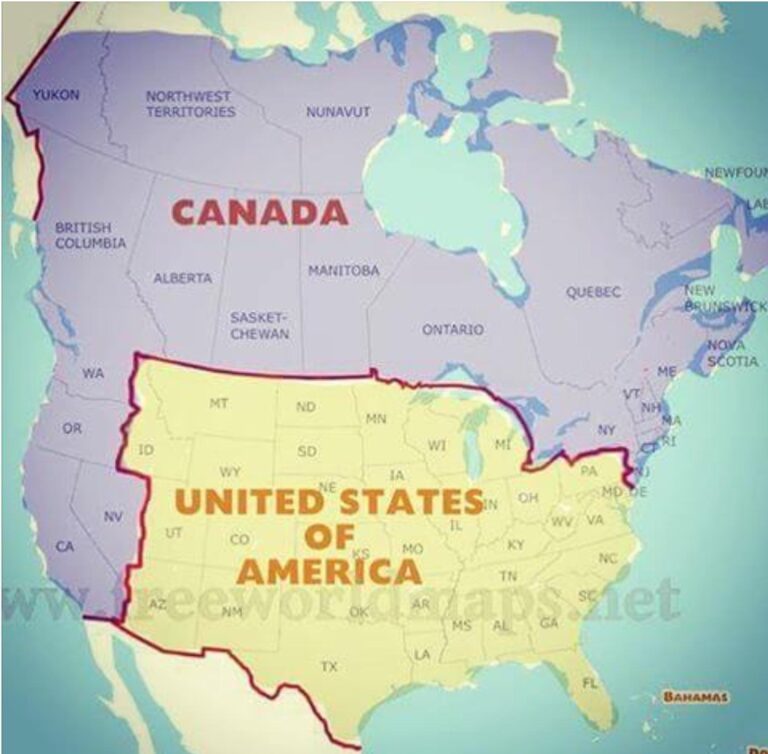Exploring the Prospect of California, Oregon, and Washington Joining Canada: Insights from a Recent YouGov Survey
Contrasting Views on Western States Potentially Becoming Part of Canada
A recent YouGov survey has reignited discussions about the intriguing possibility of the U.S. Pacific states‚ÄĒCalifornia, Oregon, and Washington‚ÄĒintegrating into Canada. The poll uncovers a complex spectrum of opinions among residents on both sides of the border, reflecting evolving political, economic, and cultural landscapes in North America. While many Americans in these states express reservations, Canadians appear more open or curious about the idea, highlighting differing priorities and concerns.
Key findings from the survey include:
- About 45% of residents in the western U.S. oppose the idea, with 40% showing some degree of support.
- More than half of Canadian respondents are either favorable or intrigued by the prospect.
- Both populations share apprehensions regarding governance complexities and cross-border integration challenges.
| Region | Support (%) | Opposition (%) | Undecided (%) |
|---|---|---|---|
| California | 42 | 48 | 10 |
| Oregon | 44 | 43 | 13 |
| Washington | 39 | 47 | 14 |
| Canada | 52 | 30 | 18 |
Understanding the Underlying Drivers of Public Opinion
The attitudes toward the potential annexation of these western states are shaped by a blend of cultural identity, economic interests, and political values. For many Americans in California, Oregon, and Washington, a strong attachment to U.S. national identity and pride in their region’s innovation and progressive policies fuels skepticism about joining Canada. These states are known for their leadership in technology, environmental initiatives, and social progressivism, which many residents feel align more closely with American ideals.
Conversely, Canadians often view the prospect through the advantages of their social welfare systems, universal healthcare, and environmental stewardship, which enjoy broad public support. The appeal of these benefits contrasts with concerns about the complexity and cost of the American healthcare system and economic uncertainties.
Several critical factors influence these perspectives:
- Healthcare: Canadians value their universal healthcare, while Americans worry about insurance complexities and expenses.
- Economic Considerations: Americans fear disruption to thriving tech sectors and trade, whereas Canadians see potential for economic diversification.
- Political and Cultural Identity: Both populations hold deep-rooted national pride and political traditions, complicating any potential realignment.
- Environmental Policies: Shared environmental concerns exist, but governance approaches differ significantly.
| Factor | American Perspective | Canadian Perspective |
|---|---|---|
| Healthcare | Complex insurance systems and high costs | Universal coverage and accessibility |
| Economy | Innovation-driven markets with trade concerns | Stable but smaller economic scale |
| Identity | Strong national and regional pride | Focus on social unity and cohesion |
| Environment | Progressive yet fragmented policies | Nationwide commitment to green initiatives |
Potential Economic and Political Consequences of a Cross-Border Shift
If California, Oregon, and Washington were to join Canada, the economic and political ramifications would be profound for both nations. These states collectively generate nearly 15% of the United States’ GDP, driven by sectors such as technology, agriculture, and international trade. Their integration into Canada would necessitate extensive renegotiations of trade agreements, tax policies, and regulatory frameworks. Businesses accustomed to U.S. systems might face new challenges, including altered customs procedures and labor regulations.
From a political standpoint, incorporating these populous and politically progressive states could significantly influence Canadian federal dynamics, potentially shifting policy priorities toward more left-leaning agendas. Meanwhile, the United States would experience a reduction in electoral votes and a reconfiguration of its political landscape. Key issues to consider include:
- Governance and Sovereignty: Managing the relationship between existing Canadian provinces and the newly added states.
- Border Security: Overhauling customs and law enforcement coordination across an extended international boundary.
- Diplomatic Relations: Adjusting North American trade and security partnerships to reflect new realities.
| Area | Expected Impact |
|---|---|
| U.S. Electoral College | Reduction in total electoral votes, altering political power balance |
| Canadian Federal Budget | Increased expenditures for infrastructure and social services |
| Trade Agreements | Requirement for comprehensive renegotiations under new jurisdiction |
Strategic Recommendations for Policymakers Navigating Cross-Border Sentiments
To address the complex emotions and practical concerns surrounding this hypothetical regional realignment, policymakers must engage in transparent, inclusive dialogue with affected communities. Building trust through open communication can help dispel misunderstandings and foster cooperation. Essential areas of focus include economic impact analysis, cultural preservation, and governance frameworks that respect local identities.
Establishing bilateral task forces dedicated to exploring the multifaceted challenges of such a transition could provide valuable insights and policy guidance. These groups should examine trade continuity, legal jurisdiction, and citizen rights to ensure a smooth and equitable process. The following matrix outlines critical policy domains and corresponding strategies:
| Policy Domain | Challenges | Recommended Actions |
|---|---|---|
| Economic Stability | Potential trade disruptions and currency integration issues | Preserve cross-border trade agreements and implement fiscal safeguards |
| Cultural Identity | Risk of community resistance and cultural erosion | Support local cultural initiatives and promote inclusivity |
| Legal and Governance | Conflicts in jurisdiction and legal uncertainties | Harmonize laws and protect dual citizenship rights |
- Encourage cross-border cultural festivals to enhance mutual understanding.
- Invest in joint infrastructure projects to strengthen regional cooperation.
- Develop educational exchange programs to build shared knowledge and relationships.
Final Thoughts
The YouGov survey offers a compelling snapshot of the nuanced and often unexpected attitudes held by Americans and Canadians regarding the idea of California, Oregon, and Washington joining Canada. Although this scenario remains speculative, the findings highlight the intricate interplay of cultural, economic, and political factors shaping public opinion. As conversations about national identity and regional alliances evolve, these insights provide valuable context for understanding how geography and governance are viewed in contemporary North America. Whether this concept will ever gain serious political traction is uncertain, but it undeniably sparks meaningful dialogue about the future of cross-border relations in an increasingly interconnected world.







